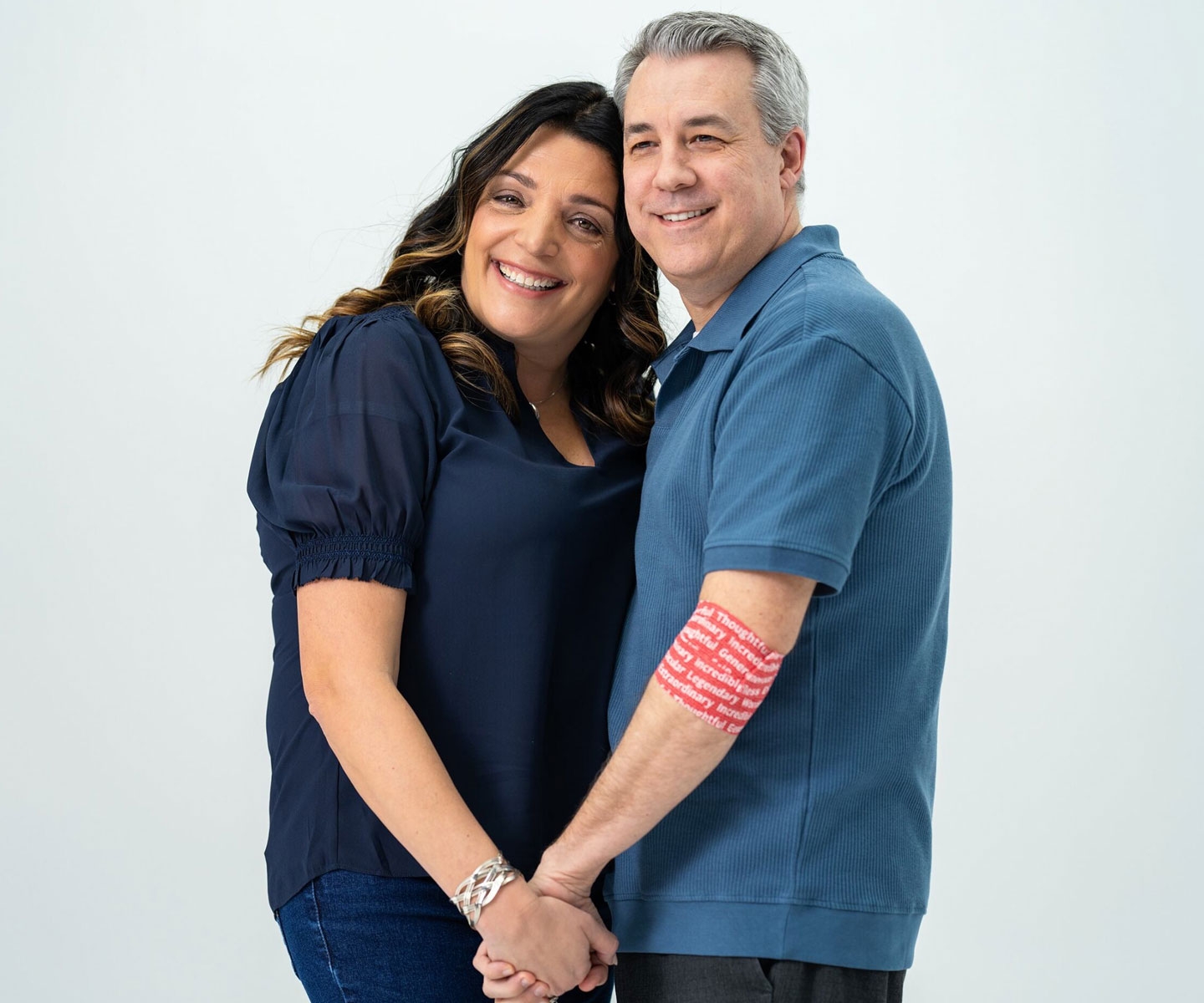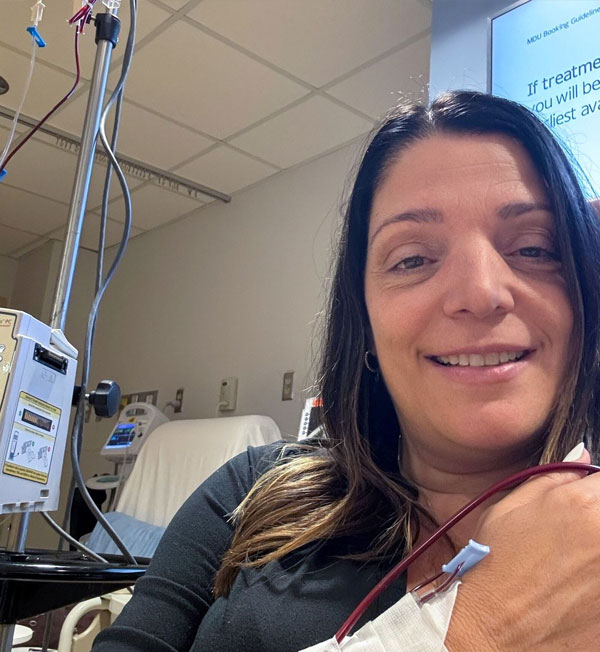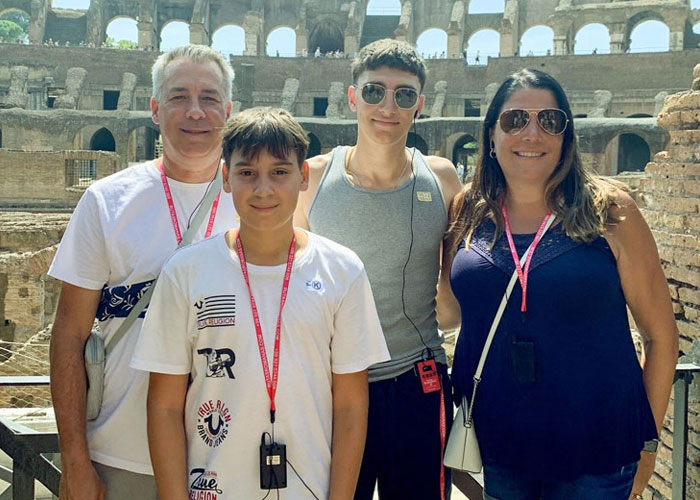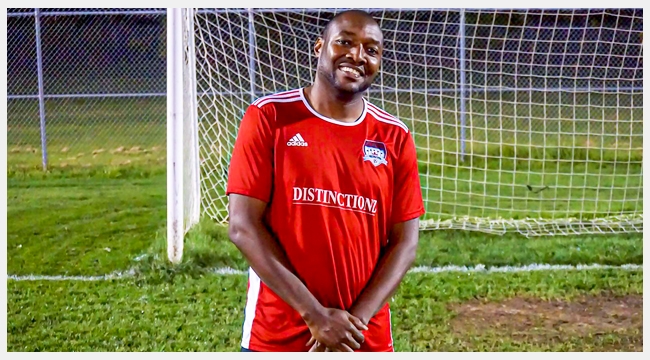A life touched by thousands of blood donors

Bessie Calabria relies on monthly blood transfusions for thalassemia. Her husband, Sal, donates in thanks.
Over a lifetime with an inherited blood disorder called thalassemia, Bessie Calabria has been on the receiving end of more than 2000 blood donations. But seeing the bags at her monthly transfusion appointments still tugs at her heartstrings.
“That means four people have gone and donated blood, and it’s there and ready for me,” she says. “I never take that for granted.”
While she can’t meet her blood donors, she does feel connected to them. Details like the donation dates on the blood bags offer a tiny window into their lives. In the early days of COVID-19, the dates signalled donors braving appointments while fear of illness was at a peak. In lighter times, they’ve revealed fun coincidences. Bessie noticed all the blood for one transfusion had been donated on her birthday. At another appointment in February, her donors had all given on Valentine’s Day.
“How sweet is it that four people took time on a day like that, to give love in a different way?” she says.

The bag labels also remind Bessie that her donors share her blood type: O-negative. If you’re one of the seven per cent of people in Canada with O-negative blood, and you’re a blood donor, perhaps you have been a part of her journey. While you may have already heard that O-negative is the “universal donor,” essential in emergencies for patients of any blood type, patients who are O-negative themselves depend on it for non-urgent care as well.
As with many patients who need blood frequently, blood from Bessie’s donors also goes through additional tests to confirm compatibility with her own. Red blood cells are coated with many proteins besides those that determine the ABO blood groups, and combinations of these proteins — called antigens — vary from person to person. After a transfusion, patients may develop antibodies to donor antigens that aren’t present in their own blood. If the patient is exposed to those same antigens again, these antibodies attack and destroy the donated cells — a reaction that can be life-threatening.
Since antigens are inherited, antigen combinations also tend to vary with ethnicity. This is one of the reasons why we need a diverse donor base to support the right care for all patients, including those with disorders such as thalassemia and sickle cell disease.
Blood transfusions can be a social occasion
With thalassemia, the body makes less than the normal amount of hemoglobin, the protein in red blood cells that carries oxygen to all parts of the body. Not all people with thalassemia require blood transfusions, but Bessie’s severe form means she will need blood for life.
Some of her earliest blood transfusions were at a hospital emergency department. Growing up in the small city of Belleville, Ont., it was the only place equipped to deliver them. One of the nurses there was a neighbour who sometimes gave her a ride home after treatment.
If Bessie’s blood donors could follow their gifts today, they’d step into a very different scene at Toronto General Hospital’s Red Blood Cell Clinic. There, Bessie spends transfusion days catching up with other blood recipients she’s befriended over the years. Sometimes they order takeout.
“There are six of us that are in on a regular basis together, and it’s quite lovely,” Bessie says. “You know, we commiserate. We laugh, we joke, we help each other.”
Blood donors fuel a career, community service and family joy
What’s really exciting is what blood donors have made possible beyond those clinic walls.
Bessie’s two teenage sons, Gianluca and Andreas, are here because blood donors provided even more support than usual to keep her pregnancies healthy. The donors have also given her the energy and good health to pursue a career in financial services, to volunteer intensively with the Thalassemia Foundation of Canada, and more recently, to be a caregiver for her 93-year-old father.

“All the things I was told I wasn’t going to be able to do, which is go to university, work full time, have a family — all of that is afforded to me because of blood donors,” Bessie says.
Bessie’s husband, Sal, says he’d love to give those blood donors a big hug. Instead, he gives thanks by donating blood himself.
“I always knew it was important to donate blood, but it wasn’t until I was older, and met Bessie, that I understood how important it was," he says. "A small gesture can help save a life.”
Thank you to all the recipients who have shared their stories with us for National Blood Donor Week 2024. Visit blood.ca/NBDW to read more stories and join our celebration of donors.

